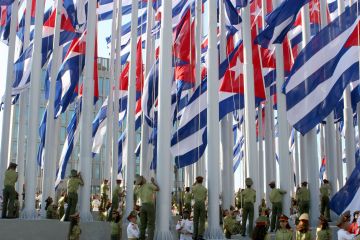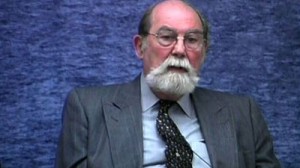
Need for a sensible Cuba policy
WASHINGTON, DC – How times have changed! There was a time when most of the countries in the Western Hemisphere agreed with Washington’s hostile policy toward Cuba and cooperated with it. Now the U.S. is alone. It is the only country in this hemisphere that does not have normal relations with the island. And in large part that is because Cuba no longer has an unfriendly policy or attitude toward the other countries. On the contrary, it has amicable relations with them. Gone are the days when the other countries saw Cuba as a threat. Nor in fact is Cuba any longer a threat to the U.S. On the contrary, President Raul Castro emphasizes Cuba’s wish for normal relations with the U.S.
And U.S. refusal may now place it in a dicey situation. The Panamanian President Juan Carlos Varela has indicated that Cuba will be invited to the next hemispheric summit, to be held this coming April, with invitations going out in November. The U.S. objects to inviting Cuba, saying it isn’t a democracy. In the past, the other countries went along with the U.S. on this — but not this time. Apparently all plan to attend. It would be an embarrassment for the U.S. to be the only absent voice. And even to send the vice president or some lower ranking official in the president’s place would be awkward.

And why place ourselves in such a position? What could possibly be gained? Nothing. The U.S. should attend and agree quickly to do so. And why not? As noted above, times have changed. Cuba is no longer trying to overthrow the other governments. It is no longer a pariah. And what better way for the U.S. to signal a change of policy. The president should go and make a point of shaking hands with Raul Castro, as he did on December 10, 2013, at the memorial service in South Africa for Nelson Mandela. Obama praised the spirit of forgiveness and reconciliation Mandela exemplified, and then went on to say that “we can choose a world defined not by our differences, but by our common hopes. We can choose a world defined not by conflict, but by peace and justice and opportunity.”
Returning from South Africa, Raul Castro also expressed the hope that Cuba and the United States might “establish civilized relations” and “a respectful dialogue.” And these words are all quoted in an important new book by Bill LeoGrande and Peter Kornbluh, Back Channel to Cuba. The book is receiving enthusiastic acclaim from key figures and institutions in the foreign affairs community and I believe it is likely to play a role in bringing about — at long last — a successful denouement between the two old antagonists.
The title of the book’s last chapter, “Intimate Adversaries, Possible Friends,” sums it up quite well. And as LeoGrande and Kornbluh point out, all through the fifty some-odd years of hostility and conflict between the U.S. and Cuba, there have also been many episodes of constructive contacts and negotiations. These include author and activist John Donovan’s trips to Cuba and negotiations with Castro in 1962 and 1963, which resulted in the release of the 1,113 Bay of Pigs prisoners and 39 other U.S. citizens, among them three CIA agents. And then there was newsman Jean Daniel’s conversations with Castro in 1963, instigated by President Kennedy, who indicated that the trade embargo could be lifted if Castro ended his support for leftist movements in the hemisphere. In Daniel’s estimation, after two of his conversations with Castro, both Kennedy and Castro were ready to make peace. But then came the awful news that Kennedy had been assassinated in Dallas. As Castro glumly noted to Daniel, “this is the end of your mission of peace.”
And so it was, but that was 51 years ago. And what LeoGrande and Kornbluh are emphasizing is that in today’s atmosphere, the memories of the efforts at rapprochement that almost worked may count for more than the history of antagonism which resulted in nothing good.
Wayne Smith is a senior fellow and director of the Cuba Project at the Center for International Policy (CIP). During his twenty-five years with the State Department (1957-82), Smith served as executive secretary of President Kennedy’s Latin American Task Force and chief of mission at the U.S. Interests Section in Havana.
(From the CIP Cuba Report)


